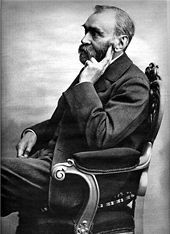“Punting the Pundits” is an Open Thread. It is a selection of editorials and opinions from around the news medium and the internet blogs. The intent is to provide a forum for your reactions and opinions, not just to the opinions presented, but to what ever you find important.
Thanks to ek hornbeck, click on the link and you can access all the past “Punting the Pundits”.
Follow us on Twitter @StarsHollowGzt
Paul Krugman: The “Yes, Minister” Theory of the Medicare Age
Aaron Carroll can’t believe that we’re still talking about raising the age for Medicare eligibility; his disbelief is easy to understand. It is, after all, a truly terrible idea, for reasons he details in the linked post; it would inflict vast hardship on the most vulnerable, while saving the federal government remarkably little money, and would actually raise overall health spending, basically because private insurers have much higher administrative costs and much less bargaining power than Medicare, so shifting seniors out of the program ends up costing a lot of money.
Yet the idea just won’t go away. It’s almost surreal. What’s going on here? [..]
When I look at this whole discussion I keep thinking of a line from “Yes, Minister”: “We must do something. This is something. Therefore we must do it.”
And there’s a real possibility that this kind of logic will lead to huge suffering for hundreds of thousands of older Americans.
Richard (RJ) Eskow: When You’ve Lost the VFW on Budget Cuts, You’ve Lost America
The “chained CPI” is an attempt to camouflage deep cuts to Social Security and other benefits, along with tax hikes on middle class wages (but not for high incomes), in a forest of numbers and terminology.
Know who’s expert at camouflage? Veterans. And a whole lot of their organizations hate the “chained CPI.” [..]
A wide range of organizations representing the nation’s veterans signed a joint letter to leaders in Congress which said “we are writing to express our opposition to changing the formula used to calculate the annual cost of living adjustment (COLA) because of the harmful effects it will have on veterans and Social Security benefits.”
The organizations signing on to the letter (18 in all) spanned generations, with the Vietnam Veterans of America and Iraq and Afghanistan Veterans of America. It includes former enlisted personnel as well as the Military Officers Association of America. Gold Star Wives, an organization of widows and widowers whose spouses died while on active duty, was represented. And so was the VFW, or Veterans of Foreign Wars, an organization that had traditionally been staunchly conservative.
Here’s a thought for politicians who might be considering the “chained CPI”: When you’ve lost the VFW, you’ve lost America.
Not surprisingly, the wealthy people who have benefitted from the policies that have redistributed income upward, for example NAFTA-type trade deals, Wall Street bailouts, and anti-union labor policies, don’t want the public talking about them. This is why we have the Erksine Bowles and Alan Simpson speaking tour.
For those who somehow have missed it, Morgan Stanley director Erskine Bowles and former Senator Alan Simpson were the co-chairs of President Obama’s 2010 deficit commission. While they were unable to produce a report that had the support necessary to win approval from the commission, they have made a career out of promoting their own proposal which they misleadingly imply was a report of the commission.
According to the New York Times, Bowles and Simpson get $40,000 a piece for speaking engagements where they push their agenda. This price tag tells us everything we need to know about what is going on here.
Robert Reich: Why the Fed’s Job Program Will Fail
For the first time, the Federal Reserve has explicitly linked interest rates to unemployment.
Rates will remain near zero “at least as long” as unemployment remains above 6.5 percent and if inflation is projected to be no more than 2.5 percent, said the Federal Open Market Committee in a statement Wednesday. [..]
These are refreshing words at a time when Congress and the White House seem more concerned about reducing the federal budget deficit than generating more jobs.
But the sad fact is near-zero interest rates won’t do much for jobs because banks aren’t allowing many people to take advantage of them. If you’ve tried lately to refinance your home or get a home equity loan you know what I mean.
Banks don’t need to lend to homeowners. They can get a higher return on the almost-free money they borrow from the Fed by betting on derivatives in the vast casino called the global capital market.
Miriam Pemberton: Defense Budget: Ripe for Reductions
The pending budget deal must include long-overdue military spending cuts.
Here we are on brink of a major historical moment. We’re beginning to wind down the longest period of war in our history. And we’re about to turn around a 13-year-long surge in Pentagon spending. [..]
And we can afford to do that because, we’re not broke. Our budget priorities just need fixing. In a recent report, my Institute for Policy Studies colleagues and I propose a framework for doing so. Our proposal includes $198 billion in yearly military cuts – from spending on things like wars we shouldn’t fight and weapon systems and overseas bases we don’t need.
These steps would get us that 30 percent contraction, which would bring this new century’s defense downsizing in line with the ones of the previous century. It’s an essential step toward building the sustainable jobs base we need.
George Zornick: Emerging Fiscal Cliff Deal Spares Corporations, but Not the Safety Net
The Wall Street Journal has news of some actual developments in the ongoing fiscal cliff negotiations: this morning, it reported that President Obama will add corporate tax reform to his offer to House Republicans, in an effort to bring them along and invite a buy-in from the pesky CEOs crowding up the airwaves during most of this saga.
The Journal says “The White House’s corporate-tax suggestion wasn’t specific” but that “White House officials, in making the suggestion, cited a corporate-tax plan the administration unveiled in February.” The plan the White House outlined earlier this year, if you don’t recall, was to lower the corporate tax rate from 35 percent to 28 percent while closing corporate tax loopholes to a degree that enough revenue is raised to offset the rate reduction.
So you can immediately see the first problem with Obama’s proposal-since it’s revenue-neutral, it asks corporate America to contribute nothing to a final deficit reduction passage.

 On this day in 1642,
On this day in 1642,  New Zealand is one of the most recently settled major landmasses. The first known settlers were Eastern Polynesians who, according to most researchers, arrived by canoe in about AD 1250-1300. Some researchers have suggested an earlier wave of arrivals dating to as early as AD 50-150; these people then either died out or left the islands. Over the following centuries these settlers developed into a distinct culture now known as Maori. The population was divided into iwi (tribes) and hapu (subtribes) which would cooperate, compete and sometimes fight with each other. At some point a group of Maori migrated to the Chatham Islands where they developed their distinct Moriori culture.
New Zealand is one of the most recently settled major landmasses. The first known settlers were Eastern Polynesians who, according to most researchers, arrived by canoe in about AD 1250-1300. Some researchers have suggested an earlier wave of arrivals dating to as early as AD 50-150; these people then either died out or left the islands. Over the following centuries these settlers developed into a distinct culture now known as Maori. The population was divided into iwi (tribes) and hapu (subtribes) which would cooperate, compete and sometimes fight with each other. At some point a group of Maori migrated to the Chatham Islands where they developed their distinct Moriori culture.
 On this day in 1946,
On this day in 1946,  In 1953,
In 1953,  On this day in 1901,
On this day in 1901, 
 The Joint Committee on the Conduct of the War was a
The Joint Committee on the Conduct of the War was a
Recent Comments